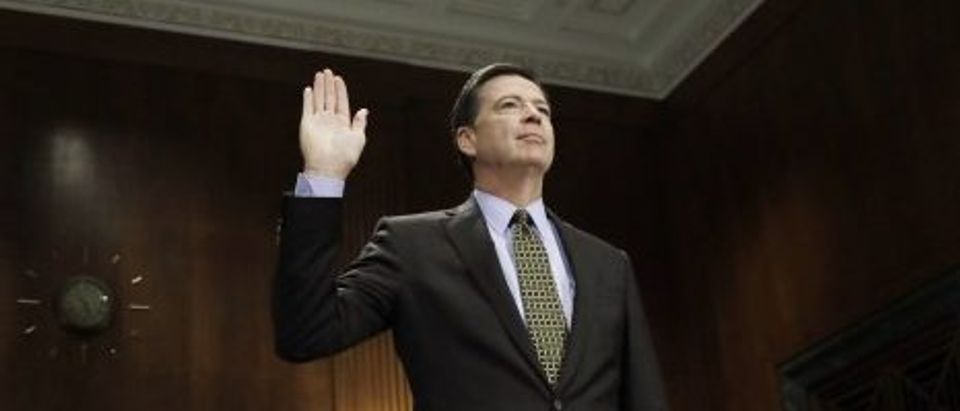FBI Director Jim Comey revealed in Senate testimony last week that all of the approximately 300 refugees being investigated for terrorism are from countries covered by President Trump’s initial travel ban.
A Department of Homeland Security official told reporters in March that out of about 1,000 investigations into potential domestic terrorists, around 300 of them are individuals who entered the U.S. as refugees. Comey confirmed these figures when testifying before the Senate Judiciary Committee last Wednesday.
The FBI Director added that they have “have another big group of people that we’re looking at who we see some contact with foreign terrorists.” These group consists of another 1,000 or so potential terrorists.
Comey was asked in the hearing by Democratic Hawaii Sen. Mazie Hirono about the countries of origin of these refugees being investigated for terrorism. The Hawaii senator specifically wondered if they were exclusively from the six countries — Iran, Libya, Sudan, Somalia, Syria, and Yemen — covered by Trump’s most recent executive order on refugees and immigration.
The order, which has been temporarily blocked by federal courts, would have stopped refugee entry for 120 days and stopped all immigration from these six countries for 90 days. The executive order calls for the federal government to review to continue accepting refugees and other immigrants from these countries or others after the 90 days are up.
The initial travel ban, which was also blocked by federal courts, indefinitely stopped Syrian refugee entry and included Iraq on the list of nationalities that would be temporarily blocked from entering the U.S.
Comey told Sen. Hirono, “About a third of [the refugees being investigated for terror] are from the six countries. I think two thirds of those were from the seventh country Iraq that was not included.”
Since Trump has entered office, 3,961 refugees have been resettled from these six countries and an additional 1,599 Iraqi refugees have been admitted.
The 4th U.S. Circuit Court of Appeals held oral arguments Monday after the Department of Justice asked the appeals court to overturn a decision to stop enforcement of Trump’s most recent travel ban. A ruling is expected in the coming weeks.
An ACLU attorney arguing against the DOJ said during the hearing that he thinks the order would be legal if another president issued it. Much of the argument against the travel ban resides on Trump’s previous statements about banning all Muslim immigration.












